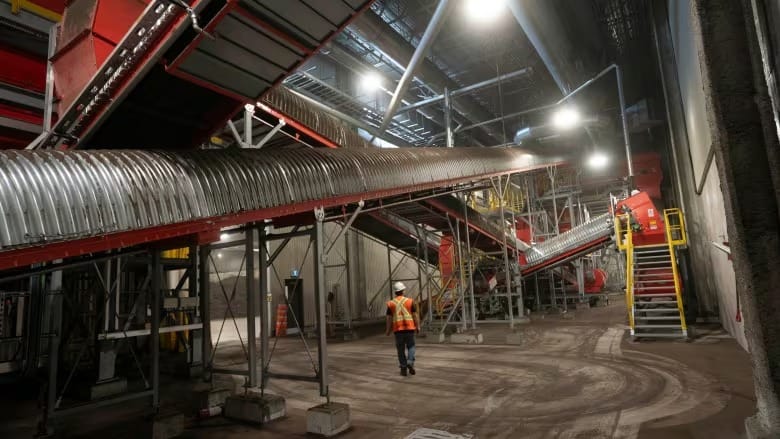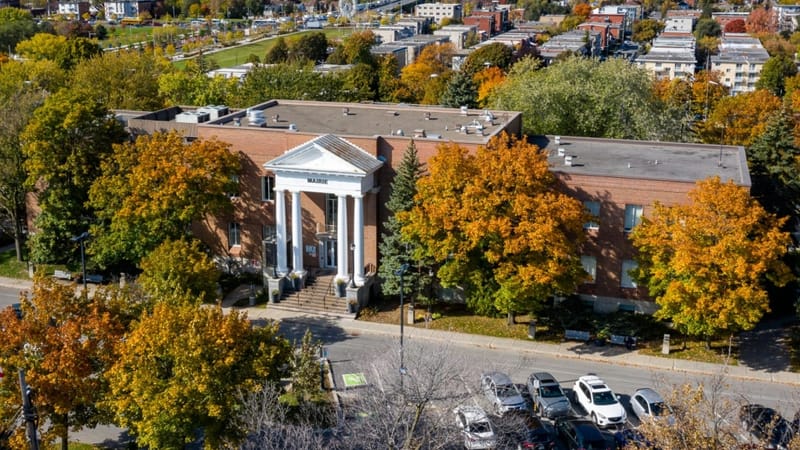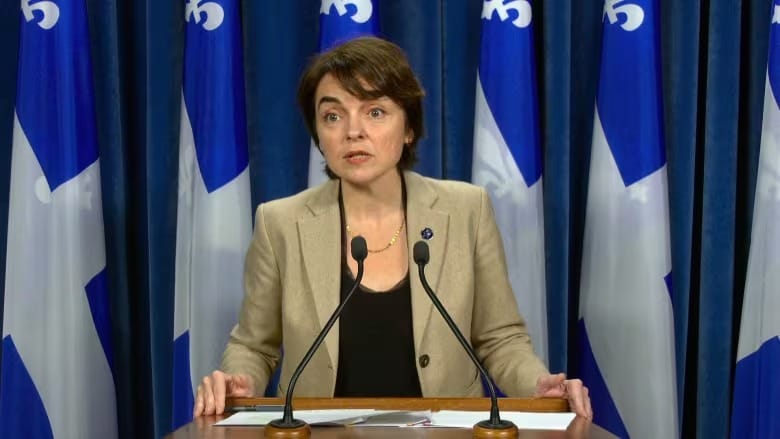Finally, Montreal has its own composting plant
Organic waste can now be treated on the island, after years of sending it to Ontario

For years, Montreal has transported residents' food scraps from brown bins to processing facilities in Ontario and Joliette, Quebec, more than 100 kilometers away.
Now, the city has finally opened its own composting site for residential waste.
On Monday, Mayor Valérie Plante inaugurated the new facility in the Saint-Laurent borough, which will now allow about 25 percent of Montreal's population to have their organic waste treated locally.
"It's great because, for the first time, we will be creating compost here that will be used here on our territory," Plante said during a press conference.
Previously, food waste had to be transported up to 180 kilometers, contributing to greenhouse gas emissions, she explained.
Soil for Residents, Fertilizer for Farmers
The Saint-Laurent facility will process food and yard waste from Montreal’s western neighborhoods and some areas in the West Island. It has the capacity to handle 50,000 tonnes of organic material annually—equivalent to filling 12 Olympic-sized swimming pools.
Frédéric Van Heems, president of Veolia, the French company responsible for the facility, assured residents that the plant would not cause any odor issues, which had been a concern when the project was first proposed.
"There is no odour," Van Heems said. "All the composting is done in tunnels."
The compost produced will be available to residents as topsoil, while some will also be sold as fertilizer to local farmers.
Another composting facility is planned for Montréal-Est and is expected to open next year, which will handle the remaining 75 percent of the city's organic waste.
Delays and Cost Overruns
The construction of both facilities has faced multiple delays and budget increases, including setbacks from a labor dispute between Veolia and a local contractor.
Originally, the city budgeted $237 million in 2013 to build five composting centers. However, the plan was scaled back to two centers, which ended up costing more than initially expected.
The Saint-Laurent site on Henri-Bourassa Boulevard was completed at a cost of $169 million—about $5 million over budget due to the labor dispute. The cost was shared between the federal, provincial, and municipal governments.
Encouraging Participation
At the opening, Plante urged residents to embrace composting. Currently, around 60 percent of people living in buildings with eight or fewer units participate in composting, while only about 30 percent of those in larger buildings do.
"The people that already do it, continue to do it," Plante said. "People that haven't done it for different reasons, it's time to start."
Karel Ménard, executive director of the Quebec Coalition of Ecological Waste Management, highlighted the environmental benefits of the Saint-Laurent facility. Not only will it provide valuable soil for farmers, but it will also help cut greenhouse gas emissions from organic waste.
"When we compost it, we turn it into a resource in the form of a much-needed amendment to our farmland," Ménard said.
Food waste in landfills releases methane, a greenhouse gas that is 80 times more potent than carbon dioxide over 20 years. Environment Minister Benoit Charrette emphasized the importance of the new project, noting that about 50 percent of landfill waste in Quebec is compostable.
"It's a total loss to send these substances into the landfill," Charrette said. "That's why a project like this is so important."





